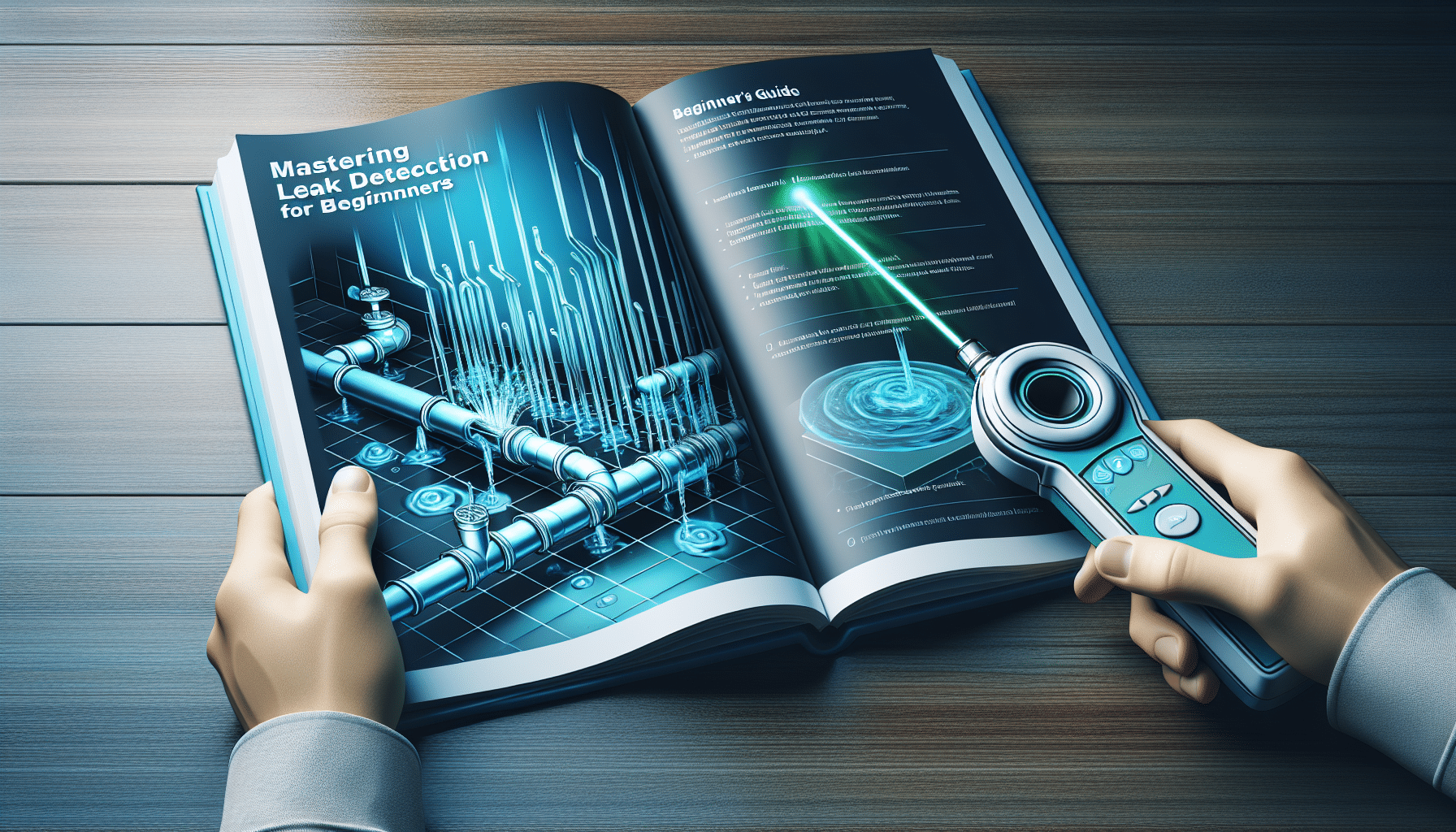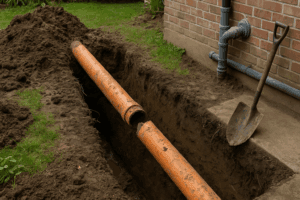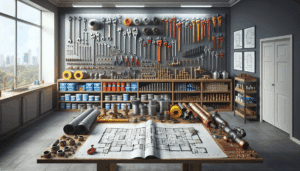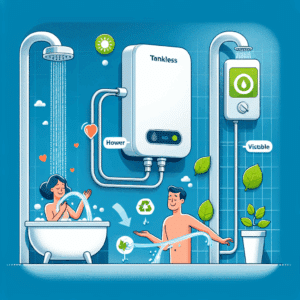As homeowners, we often face the frustrating challenge of discovering leaks when it’s already too late. This blog is here to equip you with essential skills for detecting leaks early, ensuring peace of mind and property protection. Whether you’re a new homeowner or just looking to sharpen your DIY skills, this guide helps you master Leak Detection with ease.
Understanding the Importance of Leak Detection
Leaks might seem like minor issues initially, but they can lead to significant damage if left unchecked. Water leaks not only cause property damage but also increase water bills and pose health risks due to mold growth. By mastering leak detection, we can prevent these undesirable consequences and save money.
Quickly detecting and addressing leaks safeguards our homes. It helps us conserve water and maintain a safe living environment. Moreover, a proactive approach to identifying leaks reflects our commitment to responsible homeownership.
Recognizing Common Signs of Leaks
The first step in leak detection is being aware of the common signs of trouble. Unusual water bills are often the initial indicator of an unseen leak. If your water consumption hasn’t increased but your bill has, a leak might be to blame.
Aside from changes in your water bill, look out for water stains or damp patches on walls and ceilings. Musty odors can also signal hidden water damage. Recognizing these signs early empowers us to act quickly and prevent further damage.
Conducting a Water Meter Test
The water meter test is a simple and effective method for leak detection. First, ensure all the water fixtures in your home are turned off. Then, monitor your water meter for any movement. If the meter still registers usage, you likely have a leak.
This straightforward test gives us a clear indication of whether a leak exists. It’s a valuable routine check for every homeowner, helping us detect leaks that might otherwise go unnoticed.
Inspecting Toilets for Leaks
Toilets are common culprits when it comes to leaks. A silent leak in the toilet tank can waste several gallons of water each day. One way to test for a toilet leak is by adding a few drops of food coloring to the tank. If the color appears in the bowl without flushing, there’s a leak.
This simple test is quick and easy, allowing us to immediately pinpoint problems in our toilets. It’s an essential part of maintaining efficient household plumbing and conserving water.
Checking Faucets and Showerheads
Leaky faucets and showerheads are easy to overlook but can waste a surprising amount of water over time. Regularly inspect these fixtures for dripping. Tightening connections or replacing worn washers can often remedy such leaks.
By making it a habit to inspect these fixtures, we can avoid unnecessary water wastage. Small fixes here and there can lead to savings on water bills and reduce the impact on our environment.
Examining Hose Bibbs for Leaks
Outdoor hose bibbs should not be ignored when conducting a leak inspection. Over time, these fixtures may begin to drip, especially after winter. Turn on the hose bibbs and listen for any dripping sounds or check for water pooling around the connection points.
Addressing leaks in these outdoor fixtures keeps our water systems healthy and ensures efficient water usage in gardening and other outdoor activities. Being vigilant about such leaks allows us to enjoy our yards without undue water waste.
Evaluating Under-Sink Pipes
Under-sink pipes are often hidden culprits of leaks in both the kitchen and bathroom. Regularly check for dampness, corrosion, and puddles under sinks. If you notice signs of leakage, tighten connections or replace damaged pipes promptly.
Attention to the under-sink plumbing saves us from potential water damage that could affect cabinetry and floors. A proactive approach here contributes to a healthier home environment.
Utilizing Technology for Leak Detection
Advanced technology offers superb assistance in early leak detection. Water leak detectors and smart home systems can alert us to leaks as soon as they occur. Installing these devices adds an extra layer of protection to our homes.
Integrating technology into our homes allows us to manage leaks more efficiently and react promptly to potential issues. It combines convenience with security, enhancing our home’s safety and resilience.
Performing Routine Maintenance
Preventive maintenance is key to avoiding major plumbing issues. Schedule regular inspections by a plumbing professional to ensure everything from pipes to appliances is in working order. They can spot potential problem areas that we might overlook.
By committing to routine maintenance, we extend the life span of our plumbing systems and reduce unexpected repair costs. Proactive care is a mark of responsible homeownership and keeps our homes running smoothly.
Common Causes of Household Leaks
- Pipe Corrosion: Over time, pipes can rust and weaken, leading to leaks. Regular inspection for corrosion can prevent this issue.
- High Water Pressure: Excessive pressure can strain pipes and fixtures, causing them to fail. Ensuring pressure is kept at a safe level avoids unnecessary stress.
- Tree Roots: Roots can intrude into underground pipes, leading to blockages and leaks. Monitoring and managing tree placement can prevent such occurrences.
- Clogs: Persistent blockages create pressure build-ups that may result in leaks. Regular cleaning of drains and pipes can mitigate this risk.
- Poor Installation: Subpar plumbing work can lead to vulnerability to leaks. Hiring professionals ensures job quality and system integrity.
The Benefits of Professional Inspection
While DIY methods are effective, there is no substitute for professional expertise when it comes to leak detection. Professionals use advanced tools and techniques to uncover hidden leaks and provide comprehensive solutions. Their valuable guidance helps us maintain a leak-free home.
Relying on professional inspections not only ensures thorough coverage but also gives us peace of mind. We benefit from expert advice that complements our DIY efforts and safeguards our investment in our homes.
Start mastering leak detection today by implementing these tips, and Contact Us at Gilbert Plumbing Company. Whether you reach out by phone at 480-535-0728 or Request a Free Quote, we’re here to support your journey toward a leak-free home.



